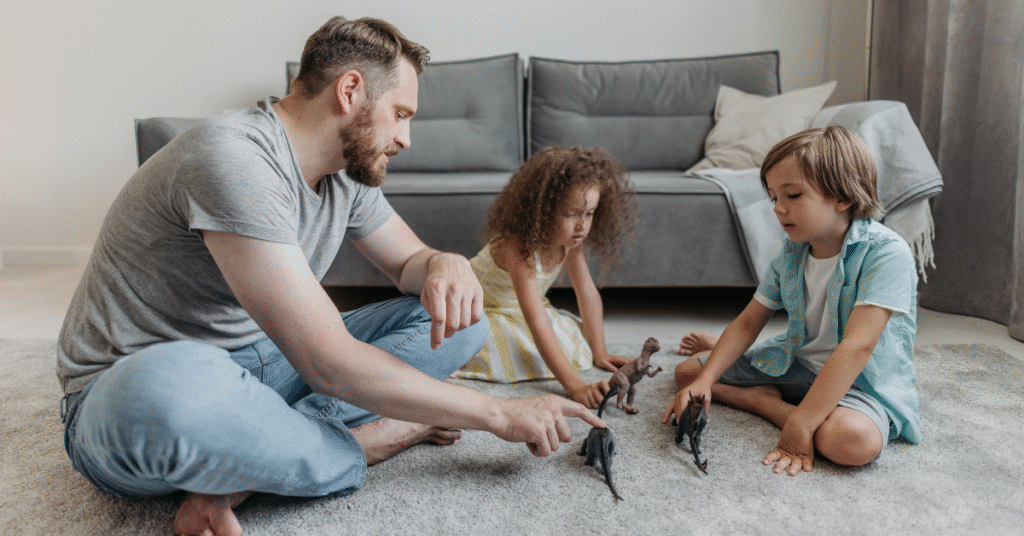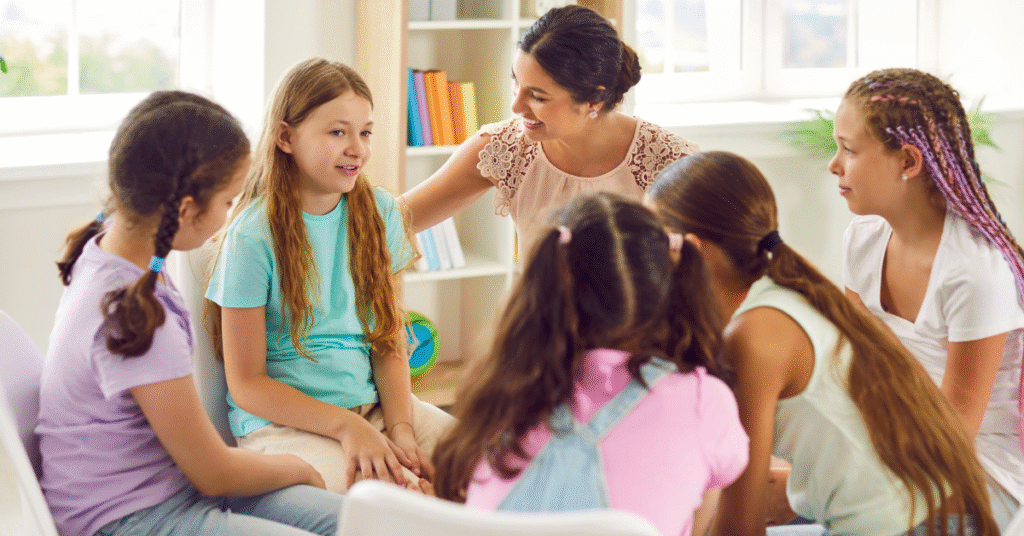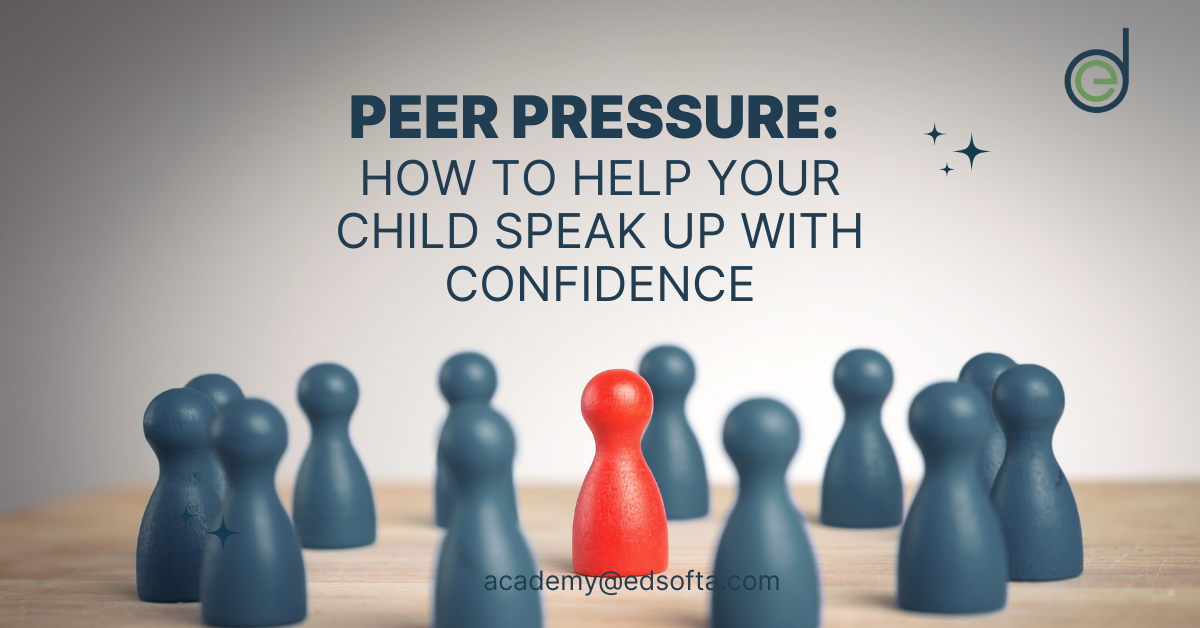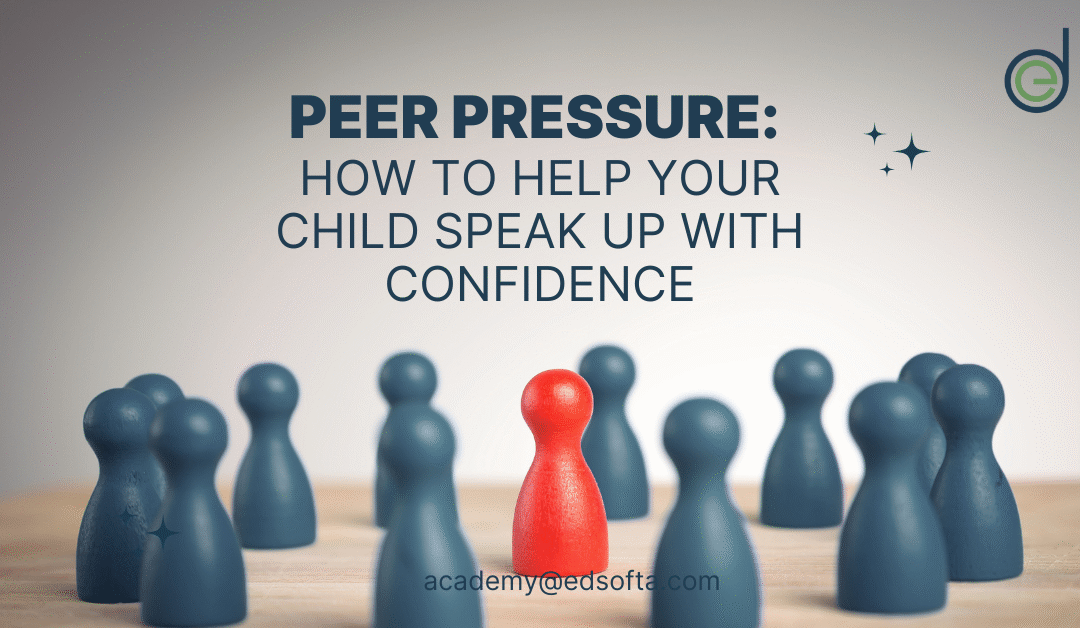What Do You Say When “No” Is Hard to Say?
Imagine this: Your child comes home from school looking a bit down. You ask what’s wrong, and they mumble something about their friends daring them to skip class or break a rule. They didn’t want to, but they didn’t want to be left out either. That, right there, is peer pressure. And every child, no matter how confident, will face it at some point. The question is, are they ready for it?
The good news? You can help. As parents, we play a crucial role in helping our children develop the courage to make the right choices, even when it’s tough. With the right tools and habits, like role-playing conversations and encouraging hobbies like Scratch coding, your child can learn to speak up, stand tall, and stay true to themselves.
Let’s break down how you can make that happen, starting today.
Understanding Peer Pressure in Kids’ Daily Lives

Peer pressure is when someone their age tries to influence how they act, dress, speak, or make decisions, sometimes for fun, sometimes not. It might look like:
- A friend says, “Everyone is skipping homework today, come on!”
- Being laughed at for not owning the latest gadget
- Getting dared to do something they know is unsafe
While not all peer influence is bad, kids need to know how to tell the difference between healthy encouragement and pressure that pushes their boundaries.
Start Practising with Simple Role-Plays

One of the most effective (and fun!) ways to prepare your child is through role-playing. You act as the friend applying the pressure, and let them practice different responses.
Here’s how to do it:
- Choose real-life situations they may face, like being offered a phone during class or being pressured to copy someone’s homework.
- Take turns playing both roles, so they understand both perspectives.
- Teach them clear, confident phrases like:
- “No thanks, I don’t want to get in trouble.”
- “I’d rather finish my work first.”
- “Let’s do something else instead.”
These mini conversations may seem small, but over time, they build confidence, self-awareness, and emotional strength.
Build Independent Thinking Through Activities Like Scratch Coding

Want to take it a step further? Introduce your child to tools that build problem-solving and decision-making skills.
Coding with Scratch, a kid-friendly programming platform, is one powerful way to do just that.
Here’s why it works:
- Kids learn to think logically and creatively
- They make choices as they build games or animations
- They gain confidence by solving challenges on their own
In fact, when a child creates their Scratch project and figures out how to fix a bug or design a game level, they’re practising the same mental muscles they’ll use to stand their ground in a peer pressure moment.
Encourage Daily Conversations About Values

Beyond role-plays and tech skills, it’s also important to talk, really talk, with your child about your family’s values.
Ask questions like:
- “Why do you think it’s important to be honest, even when others aren’t?”
- “What would you do if someone pressured you to do something wrong?”
These small, everyday chats help your child connect their actions to their identity. It shows them that saying “no” isn’t just allowed, it’s powerful.
Celebrate Effort, Not Just Outcomes

Children under pressure from peers are often also looking for validation from adults, friends, or both.
That’s why it helps to praise them not just when they “get it right,” but when they:
- Make the effort to stand up for themselves
- Think through their decisions
- Speak up, even if it’s uncomfortable
Instead of saying “I’m proud you didn’t do that,” try saying, “I love how you thought for yourself today. That takes courage.”
Over time, your child will learn to trust their judgment and stop relying on others for approval.
Give Them a Space to Be Themselves
Confidence grows in spaces where children feel safe and seen. Whether it’s at home, in clubs, or on creative platforms like Scratch, every child needs a place where they’re allowed to try, fail, learn, and try again.
So don’t just protect your child from peer pressure, equip them. Give them the tools, the space, and the encouragement to grow into who they’re meant to be.
Final Thoughts
Helping your child say “no” isn’t about making them fearful. It’s about making them brave.
That courage starts with tiny habits, conversations, and fun activities that boost their thinking and confidence.
Want to build your child’s confidence while having fun?
Sign them up for our Scratch coding classes today!
It’s the perfect way to nurture creativity, logic, and independence—all in one place.
Tap this link to register.
Let’s raise kids who think for themselves and speak up when it matters.




